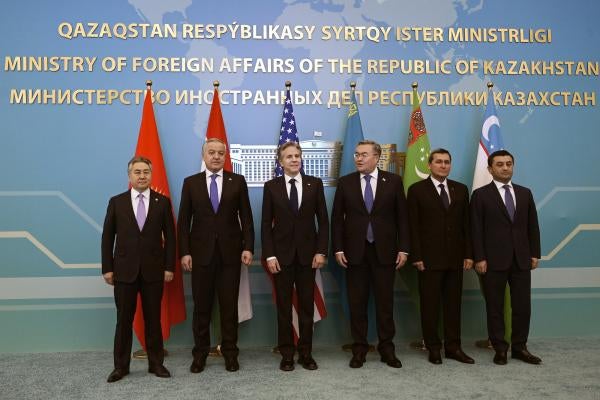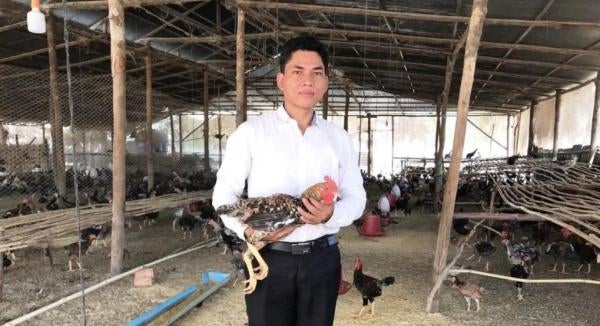Lire la version en français / Lea la versión en español
For decades, Europe and the US have generally approached Central Asia in a spirit of geopolitics first, human rights concerns later, if at all. US President Biden’s first-of-its-kind meeting with his five regional counterparts this week seems to have delivered more of the same.
Since Russia’s all-out, atrocity-ridden invasion of Ukraine started in February of last year, the West has been keen to solidify relationships in the region. They’ve been urging Central Asian governments to resist Moscow’s efforts to use trade routes through their countries to evade sanctions.
Leaders of countries that were long under the Russian and Soviet yoke, now hearing Putin’s imperialist talk and seeing his military invade neighboring countries, have their own interests in strengthening their ties with powers elsewhere.
But any partnership striving for real security in the region needs to get beyond the old clichés. Central Asia is more than its “strategic importance” or its “wealth of resources,” always “at the crossroads” of something or other the outside world wants.
Kazakhstan, Kyrgyzstan, Tajikistan, Turkmenistan, and Uzbekistan are not simply potential geopolitical allies or sources of commodities. They are, first and foremost, their people.
And the people of these five countries have longed faced some serious human rights violations.
In Kazakhstan, protests in January 2022 were met with deadly force, wrongful arrests, and torture. The government has yet to properly investigate and hold those responsible to account.
Kyrgyzstan used to be the best hope in the region, with a vibrant civil society and media. However, authorities have more recently set out to crush both.
The government of Tajikistan violently represses peaceful gatherings, uses trumped-up charges against human rights defenders and journalists, and has disbanded many civil society groups.
Turkmenistan is, quite simply, one of the most closed and repressive countries in the world.
In Uzbekistan, a long-heralded reform agenda has apparently been shelved, and the country is in reverse. Restrictions on media and politically motivated prosecutions of journalists have increased. There’s been no accountability for the authorities’ heavy-handed response to protests in July 2022.
All of these things should have been at the forefront – or at least mentioned – at the “5+1 summit” of regional leaders with Biden on Tuesday. As it was the first ever meeting by a US president with the five Central Asian presidents, so it would have been nice to see human rights in the region play a larger role. And it wouldn’t hurt for the five to bring up rights abuses in the US, too.
As it was, however, there wasn’t much to cheer about. The White House’s official readout from the meeting mentions a “new initiative on disability rights,” but details are thin. (We’re looking into that. Stay tuned.)
Not exactly 5+1=0, perhaps, but sadly pretty close.
Central Asian governments are difficult allies, for sure, but friends should be able to talk about tough issues together. And if the US and others are truly interested in security cooperation in the region, they need to think more about its people.
Long-term stability is impossible where the legitimate rights and aspirations of so many citizens are trampled upon.










